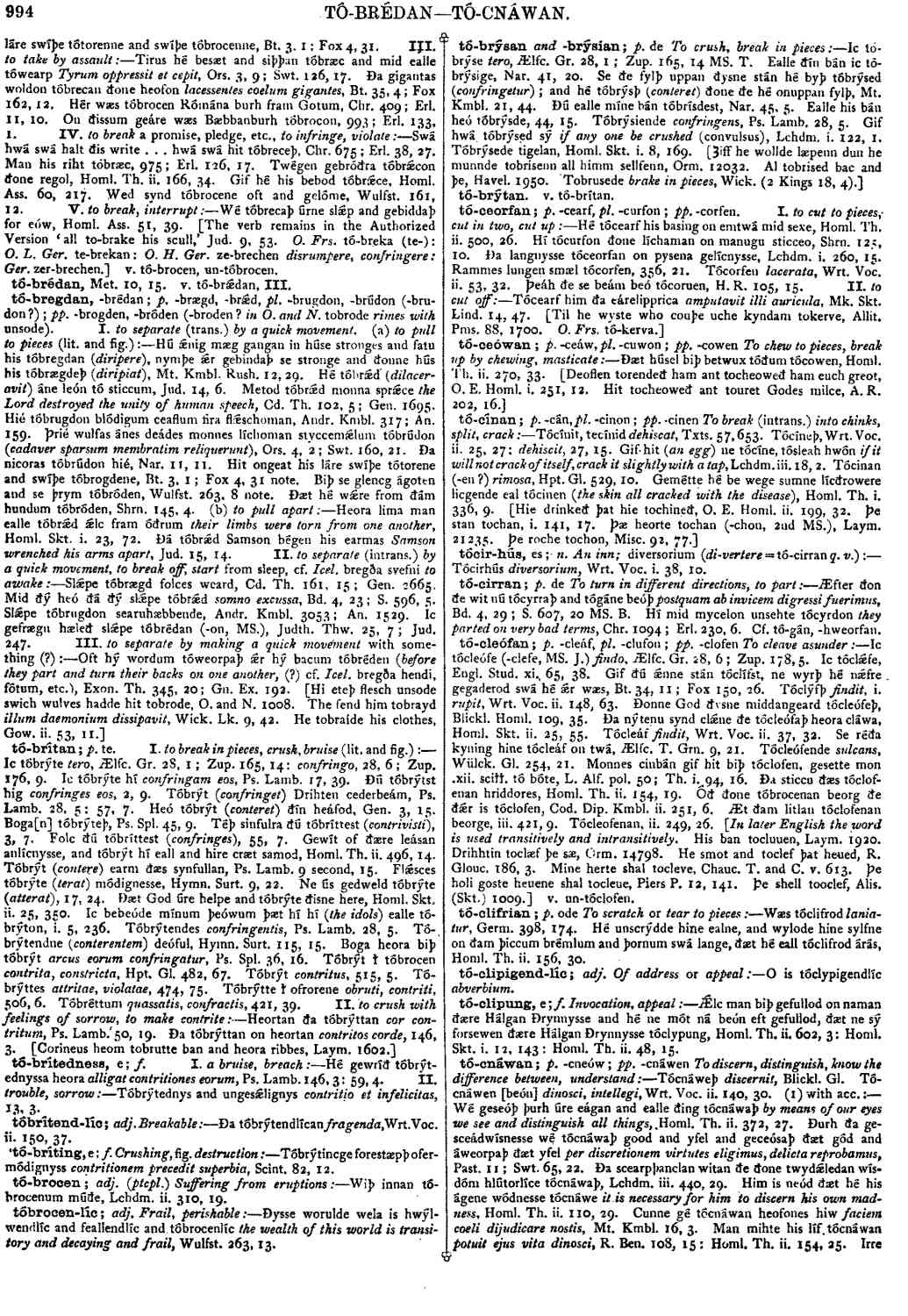tó-bregdan
- verb [ strong ]
-
Hú ǽnig mæg gangan in húse stronges and fatu his tóbregdan (diripere), nymþe ǽr gebindaþ se stronge and ðonne hús his tóbrægdeþ
(diripiat),
- Mt. Kmbl. Rush. 12, 29.
-
Hé tóbrǽd
(dilaceravit)
áne león tó sticcum,- Jud. 14, 6.
-
Metod tóbrǽd monna sprǽce
the Lord destroyed the unity of human speech,
- Cd. Th. 102, 5; Gen. 1695.
-
Hié tóbrugdon blódigum ceaflum fira flǽschoman,
- Andr. Kmbl. 317; An. 159.
-
Þrié wulfas ánes deádes monnes líchoman styccemǽlum tóbrúdon
(cadaver sparsum membratim reliquerunt
),- Ors. 4, 2 ; Swt. 160, 21.
-
Ða nicoras tóbrúdon hié,
- Nar. 11, 11.
-
Hit ongeat his láre swíþe tótorene and swíþe tóbrogdene. Bt. 3,
- 1; Fox 4, 31 note.
-
Heora lima man ealle tóbrǽd ǽlc fram óðrum
their limbs weru torn from one another,
- Homl. Skt. i. 23, 72.
-
Ðá tóbrǽd Samson bégen his earmas
Samson wrenched his arms apart,
- Jud. 15, 14.
-
Slǽpe tóbrægd folces weard,
- Cd. Th. 161, 15; Gen. 2665.
-
Mid ðý heó ðá ðý slǽpe tóbrǽd
somno excussa,
- Bd. 4, 23; S. 596, 5.
-
Slǽpe tóbrugdon searuhæbbende,
- Andr. Kmbl. 3053; An. 1529.
-
Ic gefrægn hæleð slǽpe tóbrédan (-on,
- MS.), Judth. Thw. 25, 7 ; Jud. 247.
-
Oft hý wordum tóweorpaþ ǽr hý bacum tóbréden (before they part and turn their backs on one another, (?) cf.
Icel.
bregða hendi, fótnm, etc.) . .- Exon. Th. 345, 20; Gn. Ex. 192. [Hi
-
The fend him tobrayd
ilium daemonium dissipavit,
- Wick. Lk. 9, 42.
-
He tobraide his clothes,
- Gow. ii. 53, 11.
Bosworth, Joseph. “tó-bregdan.” In An Anglo-Saxon Dictionary Online, edited by Thomas Northcote Toller, Christ Sean, and Ondřej Tichy. Prague: Faculty of Arts, Charles University, 2014. https://bosworthtoller.com/30609.
Checked: 0